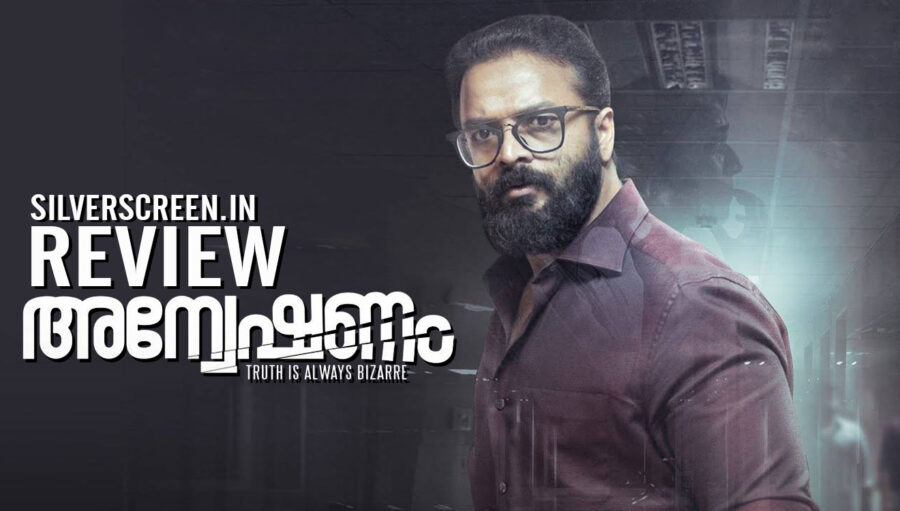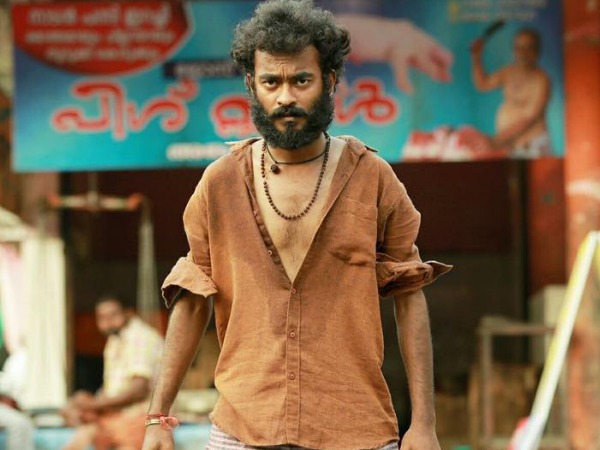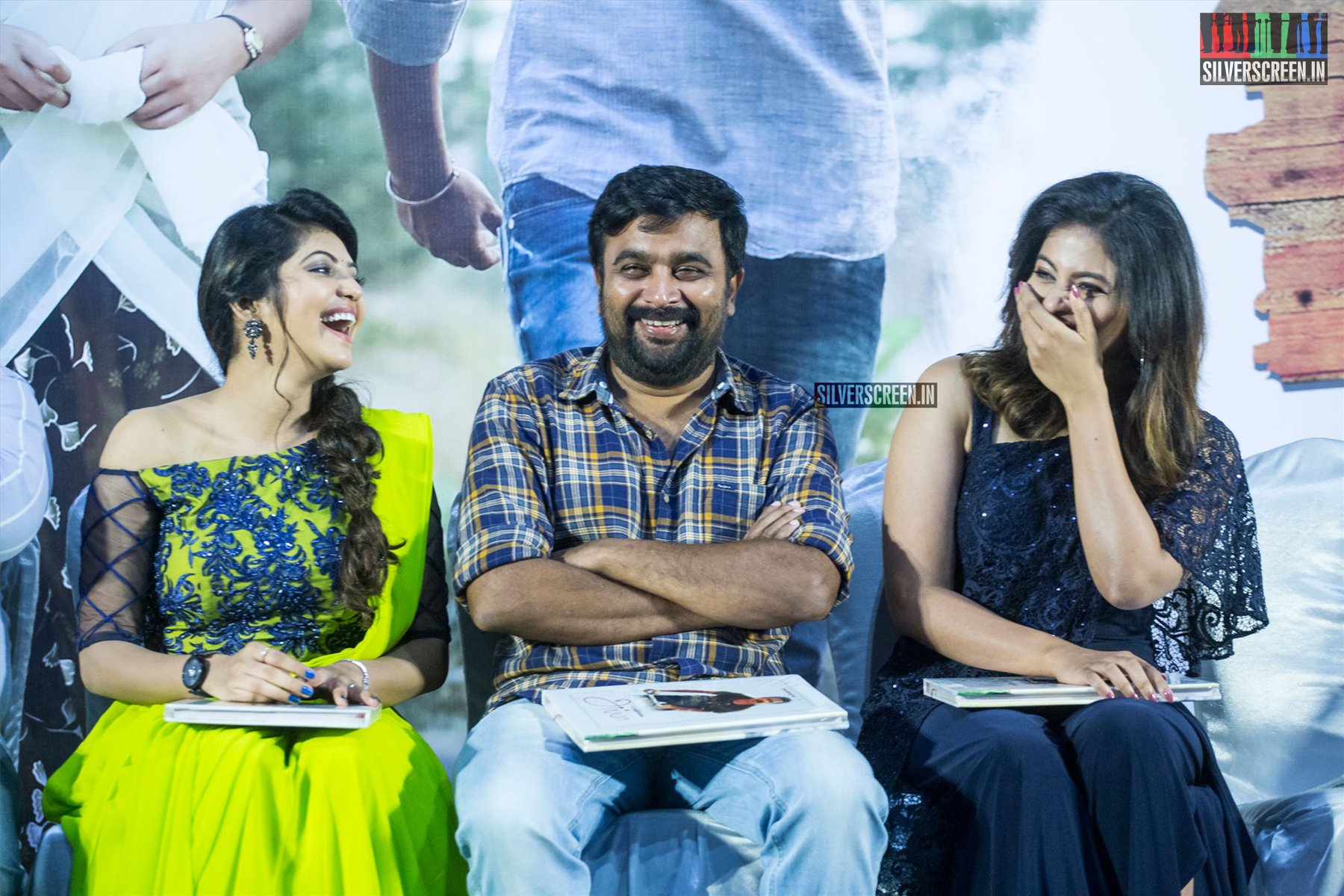Cast: Jayasuirya, Sruthi Ramachandran
Director: Prasobh Vijayan
Anveshanam, Prasobh Vijayan’s sophomore feature film, is designed like a whodunit murder mystery. A child, a boy of around ten years, dies from a head injury. In the few night hours that follow his death, his parents (Jayasurya and Sruthi Ramachandran) have come under the police radar.
At regular intervals, the screen turns into a digital clock that marks the time of different incidents that preceded and followed the tragedy. As the cops starts to grill the parents, who look distraught and seemingly incapable of committing a crime of such brutality, the film poses to the audience a complex moral and ethical riddle.
Only Anveshanam isn’t a whodunit. There is a wide gap between what it poses to be ﹣a conventional crime drama ﹣ and what it really is ﹣ an emotionally heavy drama that argues against the objective thinking that forms the basis of police investigations.
The film begins well. An image of the incident that led to the child’s death is flashed to the audience, like a clue to solve the riddle. A lullaby-like song that introduces his family ﹣His father, Aravindan, the creative-head at an television channel, his mother, Kavitha, his little sister, and a fish tank that they lovingly make from scratch to adorn their living room. Prasobh creates an intimate portrait of the household without pushing too much. Everything looks naturally warm.
When the tragedy tears this perfectly normal family apart and the police’s interrogation starts to breach the boundaries of its ‘middle-class identity’ (questions are posed on topics such as a history of abuse and extramarital affairs), the couple feel morally shaken.
One of the emotions spread out in the film’s air is a sense of disbelief ﹣ as though it wants to ask, “How could anyone think this couple could harm their child?” Dr. Gautham (Vijay Babu) repeats to his colleagues and the police that Aravindan and Kavitha are “nice people” who will never commit a crime.
A lullaby runs throughout the film to emphasize on this point. The one character who smells something fishy in the child’s death comes from a contrasting background, with a past of parental abuse.
The film holds culpable the blind law and order system, the media that likes to turn incidents of tragedy into sensational news pieces and trespass into the private lives of ordinary people, and the society’s innate sadistic tendency. But its protagonists never come to a point where they have to reevaluate their actions or introspect.
By taking this self-righteous and thereby shallow position, the film limits itself to being a mawkish unintelligent drama. The investigation part leaves a bad taste in your mouth, primarily because there isn’t enough content to keep it going.
The cops have not strong evidence enough to frame the couple. Thanks to poor writing, the interrogation sequences aren’t slightly intriguing. Unlike Drishyam, here is no tightly set-up plot where the protagonists have to outwit the police and come out unhurt.
And this isn’t a Kuttram Kadithal that delves deep into the question of crime and retribution through the story of a primary school teacher whose seemingly simple act of corporal punishment snowballs into a fatal tragedy that urges her and the audience to see children in a different light.
In Anveshanam, the probe never goes so deep to explore the nuances of the life that children lead in an adult’s world. The weak point where the film culminates almost equates children to pets that the adults own and rear.
The film’s treatment of its child characters is especially important because one of the scenes from the film is, accidentally or by design, reminiscent of an image from the recent public memory, connected to the brutal murder of a child in the hands of his stepfather. Prasobh uses this incident to influence the viewer’s sense of judgment, and then accuse them of prejudice.
The probing team comprises three cops – the chief, a lady officer, an old constable and a young assistant. Vijayan adds a detail here, like a hat-tip to his low-profile directorial debut, Lilly – the lady officer is heavily pregnant. At first, it makes for a curious spectacle. Her cautious but strictly formal body language, and how her colleagues and the men she meets make it a point to ask about her well being.
As the film proceeds, however, this physical trait starts to look like a set-up. You see that her pregnancy is repeatedly used as a yardstick to measure her moral compass. “A parent cannot hurt his child. You’ll know that soon,” says Aravindan during the interrogation. The film’s statement of forgiveness and second chance is also linked to her pregnancy.
Recommended
The tight, handheld shots (cinematography by Sujith Vasudev) gives the film a claustrophobic chamber drama touch. Anveshanam’s strong point is, however, in the lead actors’ performances. Jayasurya gets ample space to perform, and the actor is excellent as the grieving father who is pushed to the wall. He brilliantly underplays in the scenes of breakdown, becoming a foil to Sruthi Ramachandran’s performance as an overwrought mother.
Sruthi proves to be an excellent artiste, endowed with an expressive face that makes for great close-ups. Leona Lishoy as the chief police officer is an unusual, but impressive casting choice. Lishoy’s soft eyes and voice well hide the tough inner personality of the cop.
Anveshanam is an interesting attempt at looking at the different layers of grief one passes through when a dear one passes away. The sadness, anger, and disbelief, everything that culminates in a point where returning to senses and life becomes the only option.
Jayasurya’s portrayal of the bottomless grief of the father who lost his son, to an extent, is powerful enough to cover up many blotches in the narrative because unlike the moral question at the heart of the film, grief is universally relatable.



